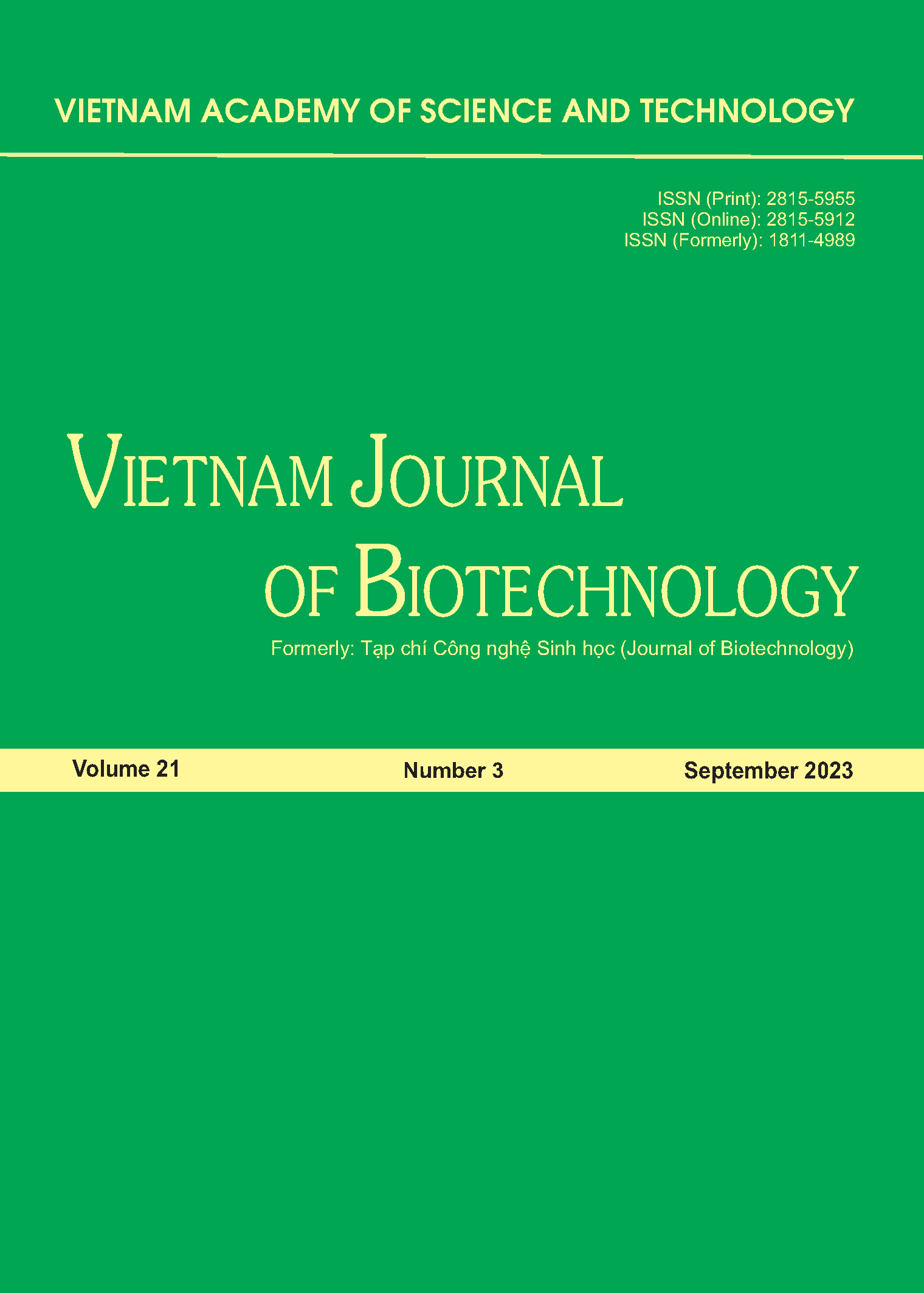Evaluating salinity effects on transgenic soybean harboring a cytokinin dehydrogenase gene at early growth stage
Author affiliations
DOI:
https://doi.org/10.15625/1811-4989/17637Abstract
Soil salinization, along with drought, is a natural threat that has a great impact on agricultural production in many locations throughout the world. The cytokinin oxidases/dehydrogenases (CKXs) play an essential role in determining plant CK levels and several of which have been modulated to improve abiotic stress tolerance. In this study, the aim was to investigate whether there were differential effects of salinity on wild-type (WT) soybean (Glycine max L.) plants and a transgenic soybean line harboring GmCKX13, which had previously been identified as a responsive gene to osmotic stress. The effects of salt stress were monitored by deploying different concentrations of NaCl. According to the obtained results, the transgenic plants could maintain a better germination rate and radicle growth than the WT plants after a 4-day treatment of 200 mM NaCl. In addition, the transgenic seedlings also displayed a more vigorous shoot and root growth with a larger biomass production under the adverse condition. The analytic data revealed that advantages acquired by the transformed plants at least came from the better capacity to reserve water in the tissue and lower stress damage, as indicated by a lower malondialdehyde content. Taking these findings together, it is suggested that modulating the expression of CKX13 could contribute to better salt tolerance in soybeans, providing the foundation for conducting more elaborate studies in the future and paving the pathway for the development of elite salinity-tolerant varieties.







